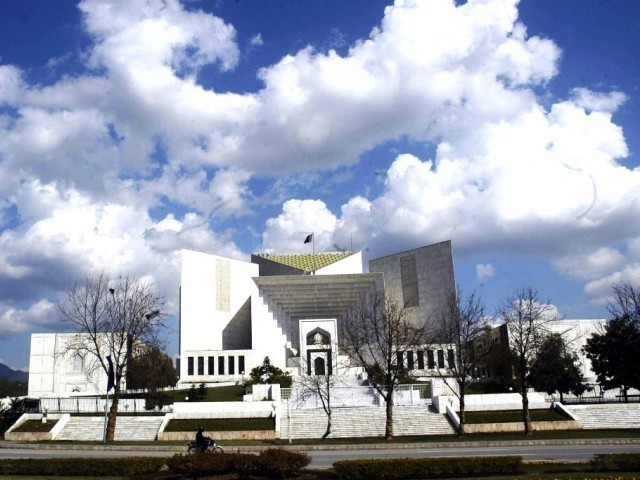
The federal government moved to the apex court after the International Monetary Fund (IMF) expressed concerns over the negative impact of the SHC decision on this year’s annual revenue collection target of Rs3.104 trillion.
The federation has filed the ‘Civil Petition Leave to Appeal’ (CPLA) in the apex court to get the SHC decision reversed. The civil petition has been filed under the Article 185 (3) of the Constitution against Younus Textiles Mills Limited, Faysal Bank Limited and IGI Insurance Company that challenged the super tax.
In the 2015-16 budget, the government slapped an additional 4% super tax on all banks and 3% on other companies and individuals having annual income of over Rs500 million. The measure was meant to raise money for the rehabilitation of Temporarily Displaced Persons (TDPs). It has collected approximately Rs24 billion so far.
However, in November, the SHC suspended the imposition of the levy. Through the petition, the federation has raised a question on whether a levy imposed under a law of the parliament could be suspended by a high court when there is no apparent lack of legislative competence.
The tax has been levied on income from profit on debt, dividend, capital gains, brokerage and commission.
If the government fails to get relief from the SC, its case may further complicate in front of the IMF. There are apprehensions in the official circles that the IMF may ask to take additional revenue measures to protect the overall revenue collection target of Rs3.104 trillion.
Although the SHC has suspended the levy, few banks in Punjab have paid the super tax in September this year.
In its interim decision, the SHC had barred income tax authorities from refusing to accept ‘Income Tax Returns’ for tax year 2015 without the payment of super tax from the banks.
Faysal Bank took a plea that in matters of fiscal laws there could only be one charging section and that charging section is section 4 of Income Tax Ordinance.
The government imposed the super tax under section 4-B and the bank’s lawyers took a plea that section 4-B was unlawful and unconstitutional.
Published in The Express Tribune, December 16th, 2015.
Like Business on Facebook, follow @TribuneBiz on Twitter to stay informed and join in the conversation.

1731933289-0/BeFunky-collage-(68)1731933289-0-165x106.webp)


1729662874-0/One-Direction-(1)1729662874-0-165x106.webp)












COMMENTS
Comments are moderated and generally will be posted if they are on-topic and not abusive.
For more information, please see our Comments FAQ